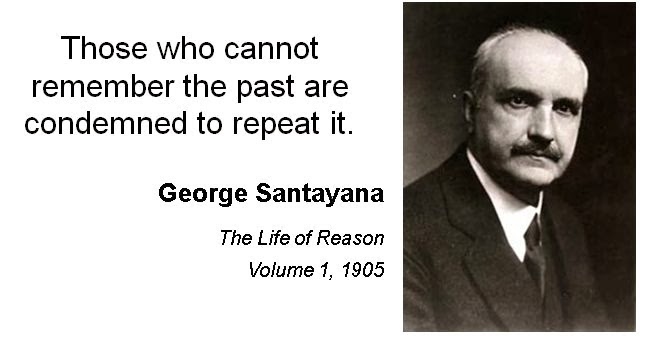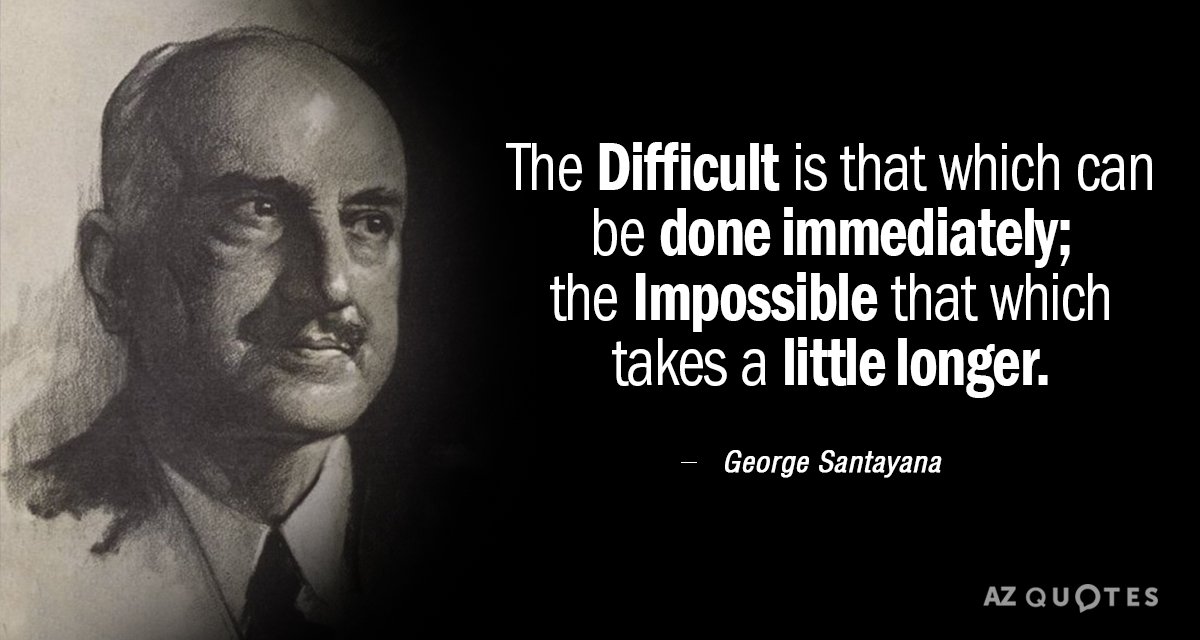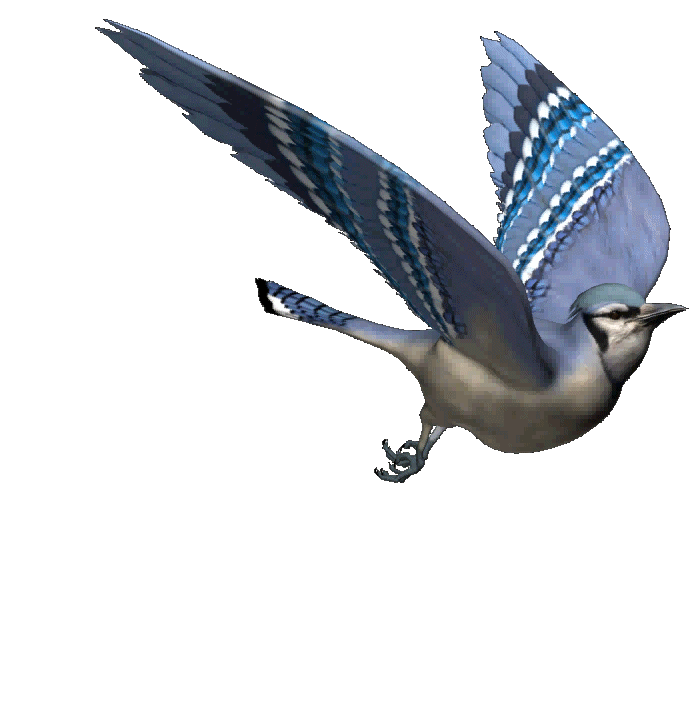
That the end of life is death may be called a truism, since the various kinds of immortality that might perhaps supervene would none of them abolish death, but at best would weave life and death together into the texture of a more comprehensive destiny. The end of one life might be the beginning of another, if the Creator had composed his great work like a dramatic poet, assigning successive lines to different characters. Death would then be merely the cue at the end of each speech, summoning the next personage to break in and keep the ball rolling. Or perhaps, as some suppose, all the characters are assumed in turn by a single supernatural Spirit, who amid his endless improvisations is imagining himself living for the moment in this particular solar and social system. Death in such a universal monologue would be but a change of scene or of metre, while in the scramble of a real comedy it would be a change of actors. In either case every voice would be silenced sooner or later, and death would end each particular life, in spite of all possible sequels.
The relapse of created things into nothing is no violent fatality, but something naturally quite smooth and proper. This has been set forth recently, in a novel way, by a philosopher from whom we hardly expected such a lesson, namely Professor Sigmund Freud. He has now broadened his conception of sexual craving or libido into a general principle of attraction or concretion in matter, like the Eros of the ancient poets Hesiod and Empedocles. The windows of that stuffy clinic have been thrown open; that smell of acrid disinfectants, those hysterical shrieks, have escaped into the cold night. The troubles of the sick soul, we are given to understand, as well as their cure, after all flow from the stars.
I am glad that Freud has resisted the tendency to represent this principle of Love as the only principle in nature. Unity somehow exercises an evil spell over metaphysicians. It is admitted that in real life it is not well for One to be alone, and I think pure unity is no less barren and graceless in metaphysics. You must have plurality to start with, or trinity, or at least duality, if you wish to get anywhere, even if you wish to get effectively into the bosom of the One, abandoning your separate existence. Freud, like Empedocles, has prudently introduced a prior principle for Love to play with; not Strife, however (which is only an incident in Love), but Inertia, or the tendency towards peace and death. Let us suppose that matter was originally dead, and perfectly content to be so, and that it still relapses, when it can, into its old equilibrium. But the homogeneous (as Spencer would say) when it is finite is unstable: and matter, presumably not being co-extensive with space, necessarily forms aggregates which have an inside and an outside. The parts of such bodies are accordingly differently exposed to external influences and differently related to one another. This inequality, even in what seems most quiescent, is big with changes, destined to produce in time a wonderful complexity. It is the source of all uneasiness, of life, and of love.
"Let us imagine [writes Freud] an undifferentiated vesicle of sensitive substance: then its surface, exposed as it is to the outer world, is by its very position differentiated, and serves as an organ for receiving stimuli.... This morsel of living substance floats about in an outer world which is charged with the most potent energies, and it would be destroyed ... if it were not furnished with protection against stimulation. [On the other hand] the sensitive cortical layer has no protective barrier against excitations emanating from within.... The most prolific sources of such excitations are the so-called instincts of the organism.... The child never gets tired of demanding the repetition of a game ... he wants always to hear the same story instead of a new one, insists inexorably on exact repetition, and corrects each deviation which the narrator lets slip by mistake.... According to this, an instinct would be a tendency in living organic matter impelling it towards reinstatement of an earlier condition, one which it had abandoned under the influence of external disturbing forces, a kind of organic elasticity, or, to put it another way, the manifestation of inertia in organic life.
"If, then, all organic instincts are conservative, historically acquired, and directed towards regression, towards reinstatement of something earlier, we are obliged to place all the results of organic development to the credit of external, disturbing, and distracting influences. The rudimentary creature would from its very beginning not have wanted to change, would, if circumstances had remained the same, have always merely repeated the same course of existence.... It would be counter to the conservative nature of instinct if the goal of life were a state never hitherto reached. It must be rather an ancient starting point, which the living being left long ago, and to which it harks back again by all the circuitous paths of development.... The goal of all life is death....
"Through a long period of time the living substance may have ... had death within easy reach ... until decisive external influences altered in such a way as to compel [it] to ever greater deviations from the original path of life, and to ever more complicated and circuitous routes to the attainment of the goal of death. These circuitous ways to death, faithfully retained by the conservative instincts, would be neither more nor less than the phenomena of life as we know it."
Freud puts forth these interesting suggestions with much modesty, admitting that they are vague and uncertain and (what it is even more important to notice) mythical in their terms; but it seems to me that, for all that, they are an admirable counterblast to prevalent follies. When we hear that there is, animating the whole universe, an Élan vital, or general impulse toward some unknown but single ideal, the terms used are no less uncertain, mythical, and vague, but the suggestion conveyed is false, false, I mean, to the organic source of life and aspiration, to the simple naturalness of nature: whereas the suggestion conveyed by Freud's speculations is true. In what sense can myths and metaphors be true or false? In the sense that, in terms drawn from moral predicaments or from literary psychology, they may report the general movement and the pertinent issue of material facts, and may inspire us with a wise sentiment in their presence. In this sense I should say that Greek mythology was true and Calvinist theology was false. The chief terms employed in psycho-analysis have always been metaphorical: "unconscious wishes", "the pleasure-principle", "the Oedipus complex", "Narcissism", "the censor"; nevertheless, interesting and profound vistas may be opened up, in such terms, into the tangle of events in a man's life, and a fresh start may be made with fewer encumbrances and less morbid inhibition. "The shortcomings of our description", Freud says, "would probably disappear if for psychological terms we could substitute physiological or chemical ones. These too only constitute a metaphorical language, but one familiar to us for a much longer time, and perhaps also simpler." All human discourse is metaphorical, in that our perceptions and thoughts are adventitious signs for their objects, as names are, and by no means copies of what is going on materially in the depths of nature; but just as the sportsman's eye, which yields but a summary graphic image, can trace the flight of a bird through the air quite well enough to shoot it and bring it down, so the myths of a wise philosopher about the origin of life or of dreams, though expressed symbolically, may reveal the pertinent movement of nature to us, and may kindle in us just sentiments and true expectations in respect to our fate - for his own soul is the bird this sportsman is shooting.
Now I think these new myths of Freud's about life, like his old ones about dreams, are calculated to enlighten and to chasten us enormously about ourselves. The human spirit, when it awakes, finds itself in trouble; it is burdened, for no reason it can assign, with all sorts of anxieties about food, pressures, pricks, noises, and pains. It is born, as another wise myth has it, in original sin. And the passions and ambitions of life, as they come on, only complicate this burden and make it heavier, without rendering it less incessant or gratuitous. Whence this fatality, and whither does it lead? It comes from heredity, and it leads to propagation. When we ask how heredity could be started or transmitted, our ignorance of nature and of past time reduces us to silence or to wild conjectures. Something, let us call it matter, must always have existed, and some of its parts, under pressure of the others, must have got tied up into knots, like the mainspring of a watch, in such a violent and unhappy manner that when the pressure is relaxed they fly open as fast as they can, and unravel themselves with a vast sense of relief. Hence the longing to satisfy latent passions, with the fugitive pleasure in doing so. But the external agencies that originally wound up that mainspring never cease to operate; every fresh stimulus gives it another turn, until it snaps, or grows flaccid, or is unhinged. Moreover, from time to time, when circumstances change, these external agencies may encrust that primary organ with minor organs attached to it. Every impression, every adventure, leaves a trace or rather a seed behind it. It produces a further complication in the structure of the body, a fresh charge, which tends to repeat the impressed motion in season and out of season. Hence that perpetual docility or ductility in living substance which enables it to learn tricks, to remember facts, and (when the seeds of past experiences marry and cross in the brain) to imagine new experiences, pleasing or horrible. Every act initiates a new habit and may implant a new instinct. We see people even late in life carried away by political or religious contagions or developing strange vices; there would be no peace in old age, but rather a greater and greater obsession by all sorts of cares, were it not that time, in exposing us to many adventitious influences, weakens or discharges our primitive passions; we are less greedy, less lusty, less hopeful, less generous. But these weakened primitive impulses are naturally by far the strongest and most deeply rooted in the organism: so that although an old man may be converted or may take up some hobby, there is usually something thin in his elderly zeal, compared with the heartiness of youth; nor is it edifying to see a soul in which the plainer human passions are extinct becoming a hotbed of chance delusions.
In any case each fresh habit taking root in the organism forms a little mainspring or instinct of its own, like a parasite; so that an elaborate mechanism is gradually developed, where each lever and spring holds the other down, and all hold the mainspring down together, allowing it to unwind itself only very gradually, and meantime keeping the whole clock ticking and revolving, and causing the smooth outer face which it turns to the world, so clean and innocent, to mark the time of day amiably for the passer by. But there is a terribly complicated labour going on beneath, propelled with difficulty, and balanced precariously, with much secret friction and failure. No wonder that the engine often gets visibly out of order, or stops short: the marvel is that it ever manages to go at all. Nor is it satisfied with simply revolving and, when at last dismounted, starting afresh in the person of some seed it has dropped, a portion of its substance with all its concentrated instincts wound up tightly within it, and eager to repeat the ancestral experiment; all this growth is not merely material and vain. Each clock in revolving strikes the hour, even the quarters, and often with lovely chimes. These chimes we call perceptions, feelings, purposes, and dreams; and it is because we are taken up entirely with this mental music, and perhaps think that it sounds of itself and needs no music-box to make it, that we find such difficulty in conceiving the nature of our own clocks and are compelled to describe them only musically, that is, in myths. But the ineptitude of our aesthetic minds to unravel the nature of mechanism does not deprive these minds of their own clearness and euphony. Besides sounding their various musical notes, they have the cognitive function of indicating the hour and catching the echoes of distant events or of maturing inward dispositions. This information and emotion, added to incidental pleasures in satisfying our various passions, make up the life of an incarnate spirit. They reconcile it to the external fatality that has wound up the organism, and is breaking it down; and they rescue this organism and all its works from the indignity of being a vain complication and a waste of motion.
That the end of life should be death may sound sad: yet what other end can anything have? The end of an evening party is to go to bed; but its use is to gather congenial people together, that they may pass the time pleasantly. An invitation to the dance is not rendered ironical because the dance cannot last for ever; the youngest of us and the most vigorously wound up, after a few hours, has had enough of sinuous stepping and prancing. The transitoriness of things is essential to their physical being, and not at all sad in itself; it becomes sad by virtue of a sentimental illusion, which makes us imagine that they wish to endure, and that their end is always untimely; but in a healthy nature it is not so. What is truly sad is to have some impulse frustrated in the midst of its career, and robbed of its chosen object; and what is painful is to have an organ lacerated or destroyed when it is still vigorous, and not ready for its natural sleep and dissolution. We must not confuse the itch which our unsatisfied instincts continue to cause with the pleasure of satisfying and dismissing each of them in turn. Could they all be satisfied harmoniously we should be satisfied once for all and completely. Then doing and dying would coincide throughout and be a perfect pleasure.
This same insight is contained in another wise myth which has inspired morality and religion in India from time immemorial: I mean the doctrine of Karma. We are born, it says, with a heritage, a character imposed, and a long task assigned, all due to the ignorance which in our past lives has led us into all sorts of commitments. These obligations we must pay off, relieving the pure spirit within us from its accumulated burdens, from debts and assets both equally oppressive. We cannot disentangle ourselves by mere frivolity, nor by suicide: frivolity would only involve us more deeply in the toils of fate, and suicide would but truncate our misery and leave us for ever a confessed failure. When life is understood to be a process of redemption, its various phases are taken up in turn without haste and without undue attachment; their coming and going have all the keenness of pleasure, the holiness of sacrifice, and the beauty of art. The point is to have expressed and discharged all that was latent in us; and to this perfect relief various temperaments and various traditions assign different names, calling it having one's day, or doing one's duty, or realising one's ideal, or saving one's soul. The task in any case is definite and imposed on us by nature, whether we recognise it or not; therefore we can make true moral progress or fall into real errors. Wisdom and genius lie in discerning this prescribed task and in doing it readily, cleanly, and without distraction. Folly on the contrary imagines that any scent is worth following, that we have an infinite nature, or no nature in particular, that life begins without obligations and can do business without capital, and that the will is vacuously free, instead of being a specific burden and a tight hereditary knot to be unravelled. Some philosophers without self-knowledge think that the variations and further entanglements which the future may bring are the manifestation of spirit; but they are, as Freud has indicated, imposed on living beings by external pressure, and take shape in the realm of matter. It is only after the organs of spirit are formed mechanically that spirit can exist, and can distinguish the better from the worse in the fate of those organs, and therefore in its own fate. Spirit has nothing to do with infinite existence. Infinite existence is something physical and ambiguous; there is no scale in it and no centre. The depths of the human heart are finite, and they are dark only to ignorance. Deep and dark as a soul may be when you look down into it from outside, it is something perfectly natural; and the same understanding that can unearth our suppressed young passions, and dispel our stubborn bad habits, can show us where our true good lies. Nature has marked out the path for us beforehand; there are snares in it, but also primroses, and it leads to peace.

George Santayana was an influential 20th century American thinker whose philosophy connected a rich diversity of historical perspectives, culminating in a unique and unrivaled form of materialism, one recommending a bold reconciliation of spirit and nature. Santayana was also a poet, and he wrote a work of fiction, The Last Puritan, that was a Book of the Month Club selection in 1936, the same year he adorned the cover of Time magazine. Though he spent his formative intellectual life in America and ultimately is best categorized philosophically in that tradition, Santayana spent the better part of his life and publishing career in Europe. He spent his early childhood in his birth-country of Spain and throughout his expansive travels and residencies never relinquished his native citizenship. Displaying in both composition and criticism a prodigious literary imagination, Santayana’s writings appealed to a wide audience, and he remains to this day one of the most quoted of twentieth century thinkers. Probably the most well-known sentence of Santayana’s is also one of the least accurately quoted: “Those who cannot remember the past are condemned to repeat it” (The Life of Reason: Reason in Common Sense. Scribner’s, 1905: 284). Scholarly interest in Santayana today remains modest but diverse. Santayana was a thinker of rare stature whose work deserves the highest compliment of all: it can and may well still be read millennia from now.
George Santayana was born on December 16, 1863 in Madrid, Spain. He lived his first eight years in Spain, his next forty years in Boston, and his last forty years in Europe. Accordingly, Santayana arranged his life in his autobiography, Persons and Places, in three parts: (1) “Background,” (2) “On Both Sides of the Atlantic,” and (3) “All on One Side.” The Background (1863-1886) encompassed his childhood in Ávila, Spain, through his undergraduate years at Harvard. The second period, during which Santayana traveled between the U.S. and Europe, covered his Harvard years (1886-1912), both as graduate student (Ph.D. 1889) and professor. The third period (1912-1952) was that of the retired professor writing and traveling in Europe, and eventually adopting Rome as his center of activity.
Santayana’s birth name was Jorge Agustín Nicolás Ruiz de Santayana. At the time of his birth Santayana’s father, Agustín Ruiz de Santayana, had only in the last few years met and married Josefina Borrás Sturgis, the recent widow of a Boston merchant named George Sturgis. While Agustín and Josefina united long enough to marry and produce young Jorge (the only child of their union), the two would ultimately part ways. Receiving financial support from her brother-in-law Robert (George Sturgis died leaving her little), Josefina decided to move herself and her surviving Sturgis children to Boston while for eight years young George and his father remained in Ávila. In 1872, father and son made the twelve-day sea voyage to Boston where Agustín briefly attempted to settle in with his wife and her Sturgis children, and, failing to do so, left young George with them to return to Spain in the spring of 1873. This early uprooting and estrangement from his father surely had a deep emotional impact on Santayana, and indeed in his autobiography he characterizes the move as a “moral disinheritance.”
Santayana had a rich early education, spending eight years at the Boston Latin School. He revealingly reflects on those early years (the fall of 1874 through 1882), in his autobiography: “…I know I was solitary and unhappy, out of humor with everything that surrounded me, and attached only to a persistent dream-life, fed on books of fiction, on architecture and on religion.” Besides Latin, students of the Boston Latin School studied Greek, Mathematics, History, French, English Composition, Literature, and Rhetoric. Through this exposure Santayana managed to develop a life-long appreciation for classical and medieval worlds and their cultural contributions, to a great extent preferring them to modern offerings. These appreciations would contribute a breadth of historical perspective to Santayana’s mature philosophical works that is unrivaled by his American contemporaries.
In his early education Santayana nurtured a love of poetry and even entertained seriously the possibility of becoming an architect. Entering Harvard upon graduation from the Latin School in 1882, Santayana respectively took his undergraduate and graduate degrees (B.A., ’86, Ph.D. ‘89), benefiting incalculably from the philosophical mentorship of his teachers, amongst whom were two of the most famous “golden age” Harvard philosophers: William James and Josiah Royce. Upon successful completion of his doctorate, Santayana, by now fully committed to the discipline, began teaching philosophy at Harvard in the fall of 1889. He would remain there until his departure at the zenith of academic success. In 1912 Santayana took advantage of a modest inheritance from the death of his mother to retire from Harvard, and left for Europe indefinitely.
As to his time in America, though he does offer the occasional fond or sympathetic reflection, Santayana largely hated academic life and commercialism and the dead Puritanism that he identified in his novel The Last Puritan. Probably referring obliquely to his own eventual feelings of exile in America, Santayana wrote: “It is natural for a man to like to live at home, and to live long elsewhere without a sense of exile is not good for his moral integrity” (Winds of Doctrine, Charles Scribner’s Sons, 1913, pg. 6).
He left the U.S. to live an intellectually free life in Oxford, Paris, and, after 1925, Rome. Unsuccessful in his efforts to leave Rome before World War II, on October 14, 1941 he entered the Clinica della Piccola Compagna di Maria, or “Convent of the Blue Nuns,” a hospital-clinic where he lived until his death in September of 1952. He is buried in the only Spanish plot in Rome’s Campo Verano Cemetery.





























